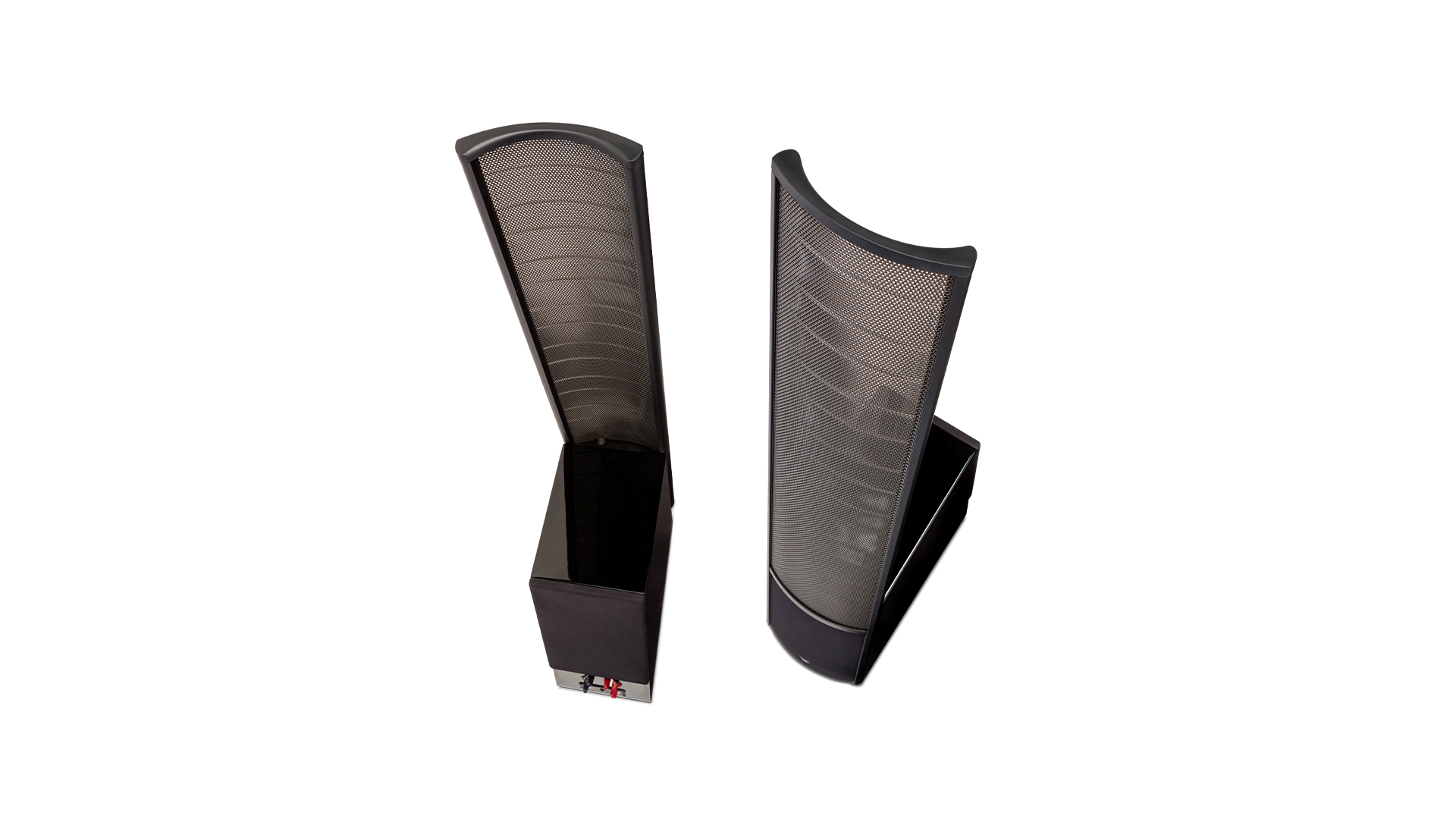
Well these Martin Logans are a bit different, aren’t they? But then, Martin Logan’s reputation is built on doing things differently.
The ElectroMotion ESL X is just the latest in a long line of the company’s hybrid speaker designs that marry an electrostatic panel with moving coil drivers to handle the bass. Why not just have a single electrostatic panel covering the whole frequency range? On paper, a single electrostatic driver makes total sense in terms of engineering purity and delivering as cohesive a sound as possible, but there are penalties in terms of speaker size (it will be big) and bass output (it will be relatively limited). That’s where Martin Logan’s hybrid approach comes in.
Design
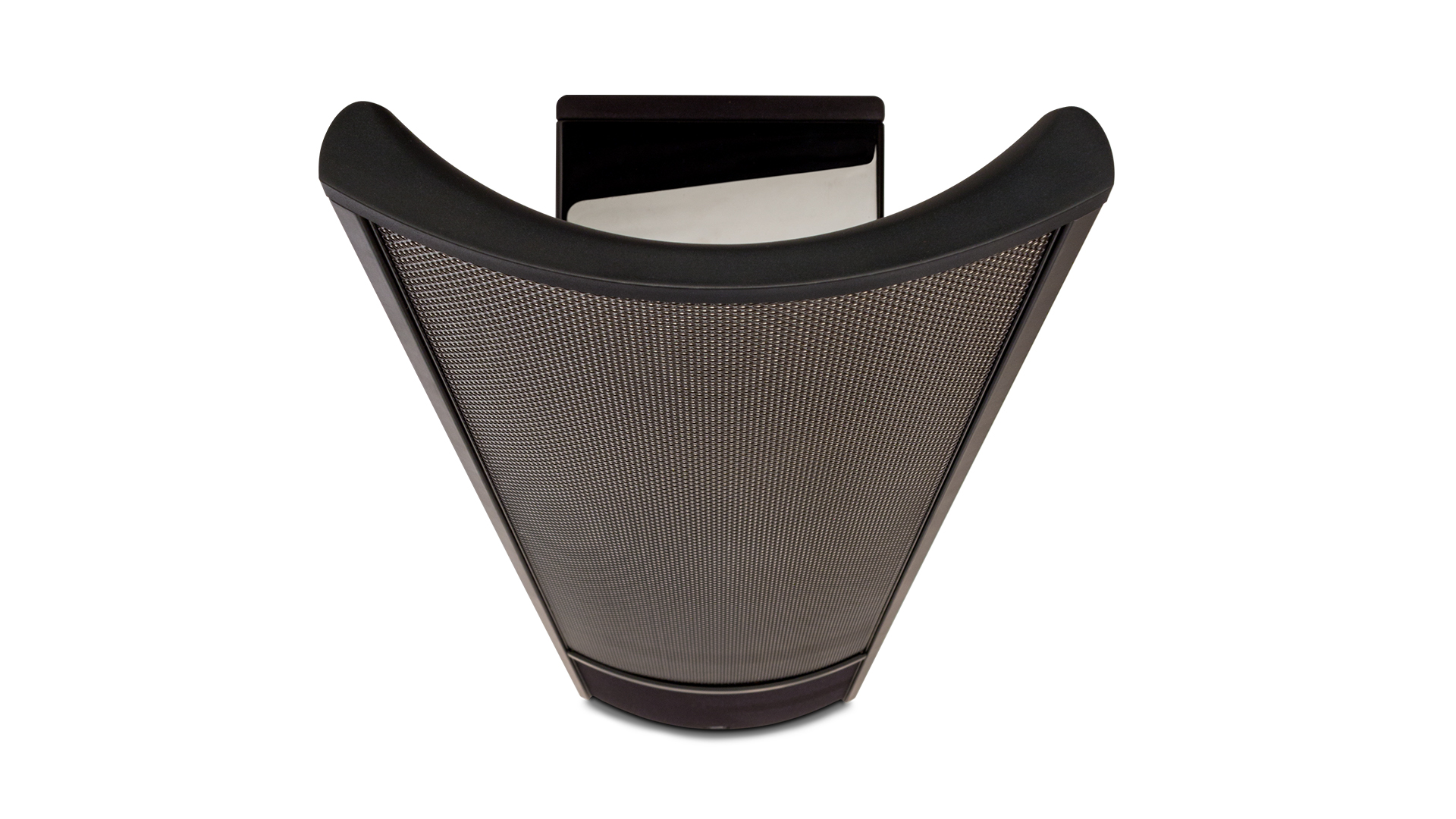
Here the 102 x 22 cm electrostatic panel covers everything from 400Hz upwards, leaving the dual 20cm bass drivers – housed in the angled box enclosure – to handle the lows. Such a configuration allows the electrostatic panel to be slim and keeps the speaker’s footprint manageable, while still covering the full frequency range properly.
There are other issues to consider though. The electrostatic panel fires as much sound forwards as it does backwards, so the positioning of the ESL X in the room, relative to the back wall, has a huge impact on performance, more so than for conventional designs. In our 7 x 5m test room we have them around a metre out from the back wall and angled towards the listening position. The characteristics of electrostatic panels mean they output very little sound sideways, so these speakers can be placed much closer to a side wall than you would expect
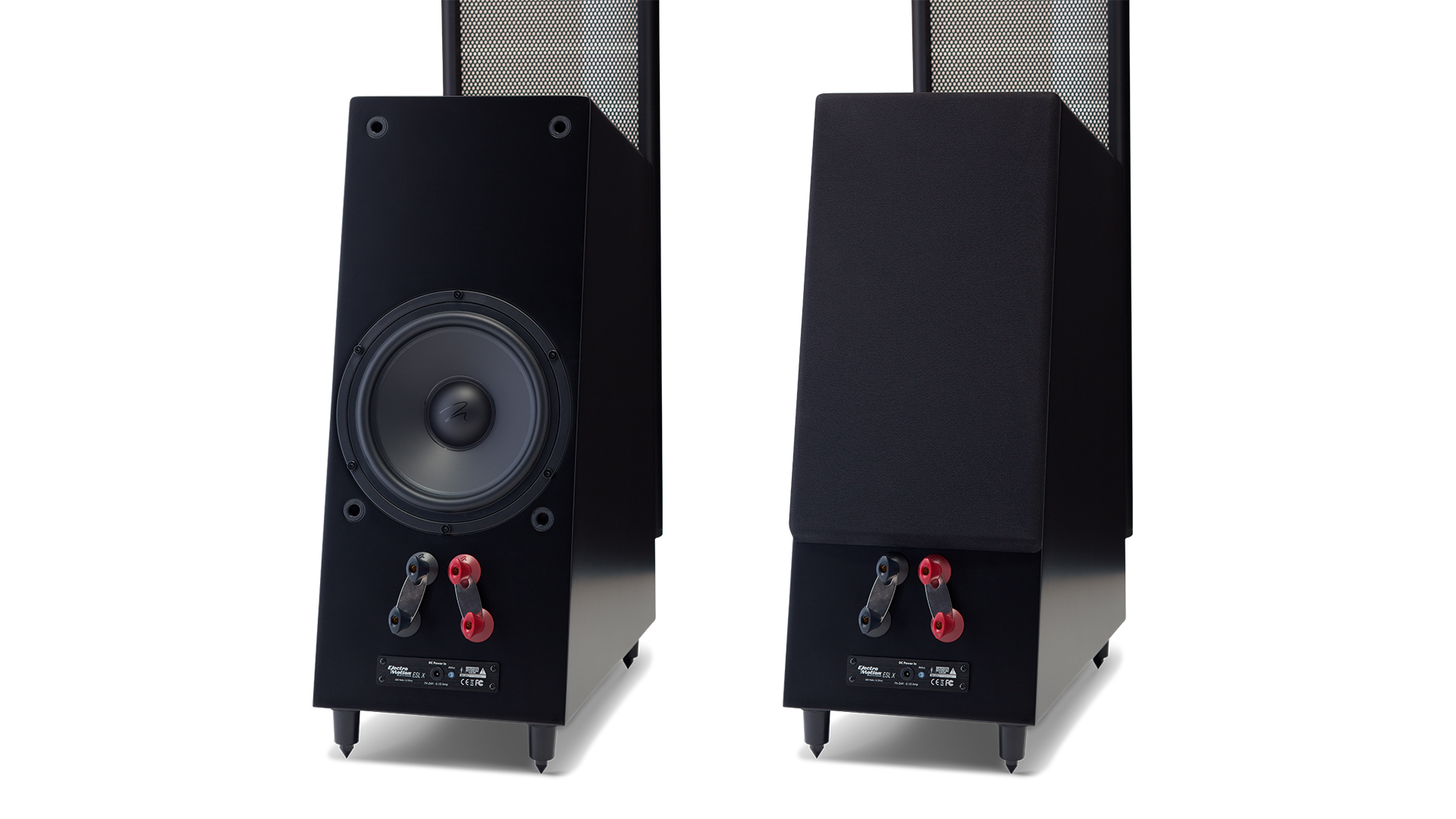
Type Hybrid electrostatic
Sensitivity 91dB/W/m
Impedance 6 ohms (minimum of 1.6 ohms at 20kHz)
Treble/midrange 102cm x 22cm electrostatic panel
Bass 2x 20cm paper cones
Crossover frequency 400Hz
Size (hwd) 150 x 24 x 53cm
Martin Logan’s use of curved electrostatic panels improves the speakers’ dispersion characteristics, making them easier to enjoy across a wider range of listening positions. The company has a set-up technique where a person sits at the main listening position with a torch and shines the light at the electrostatic panel. The speakers should be angled so that the light reflection from the diaphragm is around a third of the way in from the inside edge. This is a good starting point, and then fine-tuning can be done from there. The ESL X has a claimed nominal impedance of 6 ohms, but that dips to 1.6 ohms at higher frequencies. This could cause some partnering issues, though most good price-compatible amplifiers should be fine.
Sound
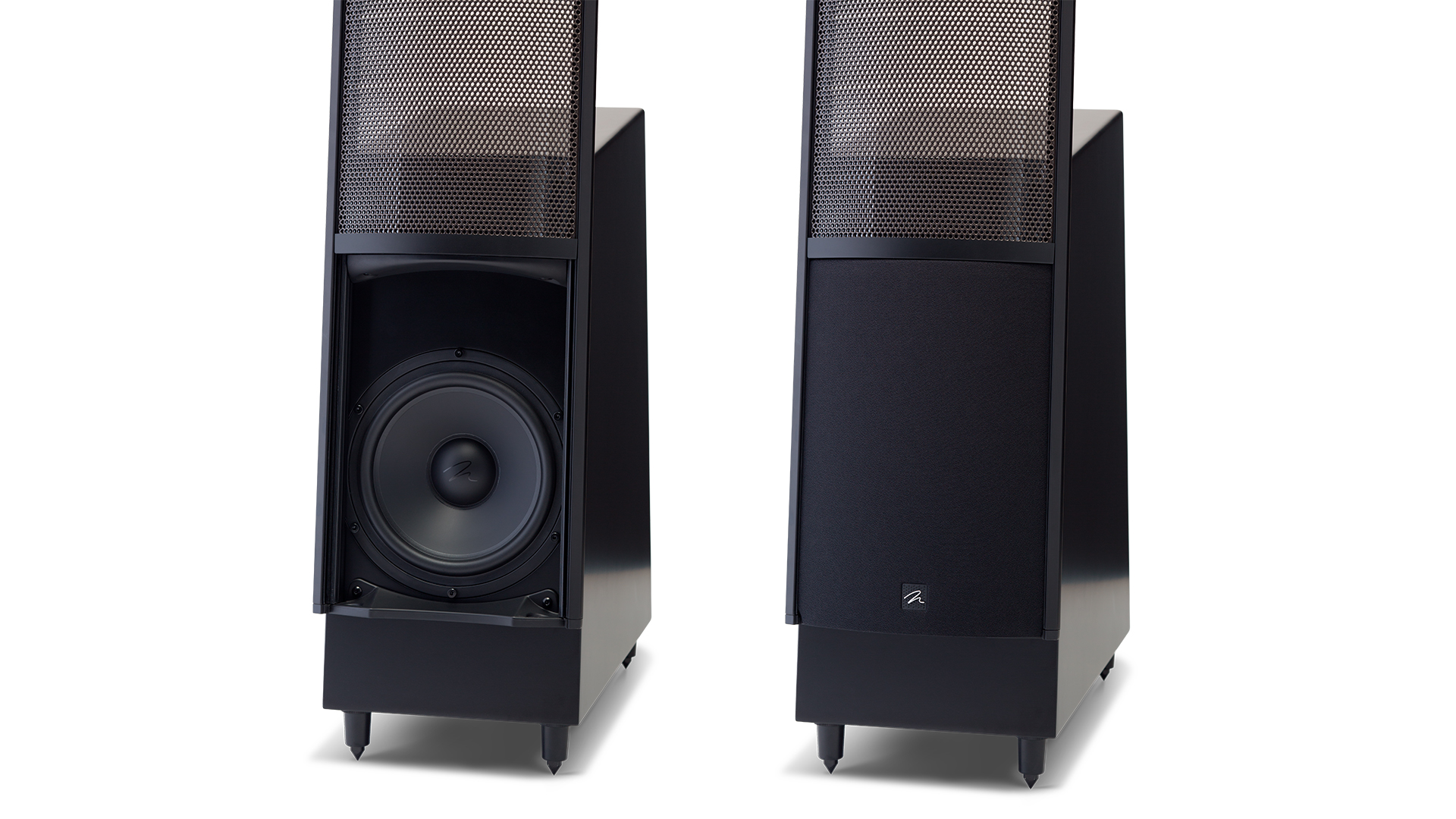
Something like Naim’s SuperNait 3 or Rega’s Aethos amplifiers would be a decent place to start, with a suitably talented source providing the signal. We use our usual reference system of a Naim ND555/555 PS DR music streamer, Technics SL-1000R/ Kiseki Purpleheart record player feeding a Burmester 088/911 Mk III pre/power amplifier, as well as the aforementioned Naim Supernait 3 integrated amp for part of the test process.
The ESL X sound unusually clean and precise when judged by conventional box-speaker standards. In such a context they dig up an extraordinary amount of fine detail through the mid to high frequencies, and deliver it in a natural and unforced way. These speakers go about their job in such an understated manner that it takes a while to appreciate just how good they are in this regard.
We listen to Orff’s Carmina Burana and hear dynamic nuances and instrumental textures that most alternatives ignore. These Martin Logans are responsive too, and able to track instrumental stands and transients with determination. Even our reference ATC SCM 50s (at around double the price) sound a little ponderous in comparison, despite having one of the best conventional midrange drive units we’ve come across. Once the ESL X are properly positioned they deliver a terrifically precise and spacious stereo soundstage. Voices and instruments are locked in place and layered with real care.
Having a single electrostatic panel to cover everything from 400Hz upwards means the ESL X avoid the integration issues of multiple drive units in this frequency range as well as side-stepping any sonic degradation a partnering crossover network would invariably cause. The presentation is utterly seamless in this region to the point where it isn’t possible to think of treble and midrange as separate entities. The result is that voices come through with exceptional clarity and nuance.
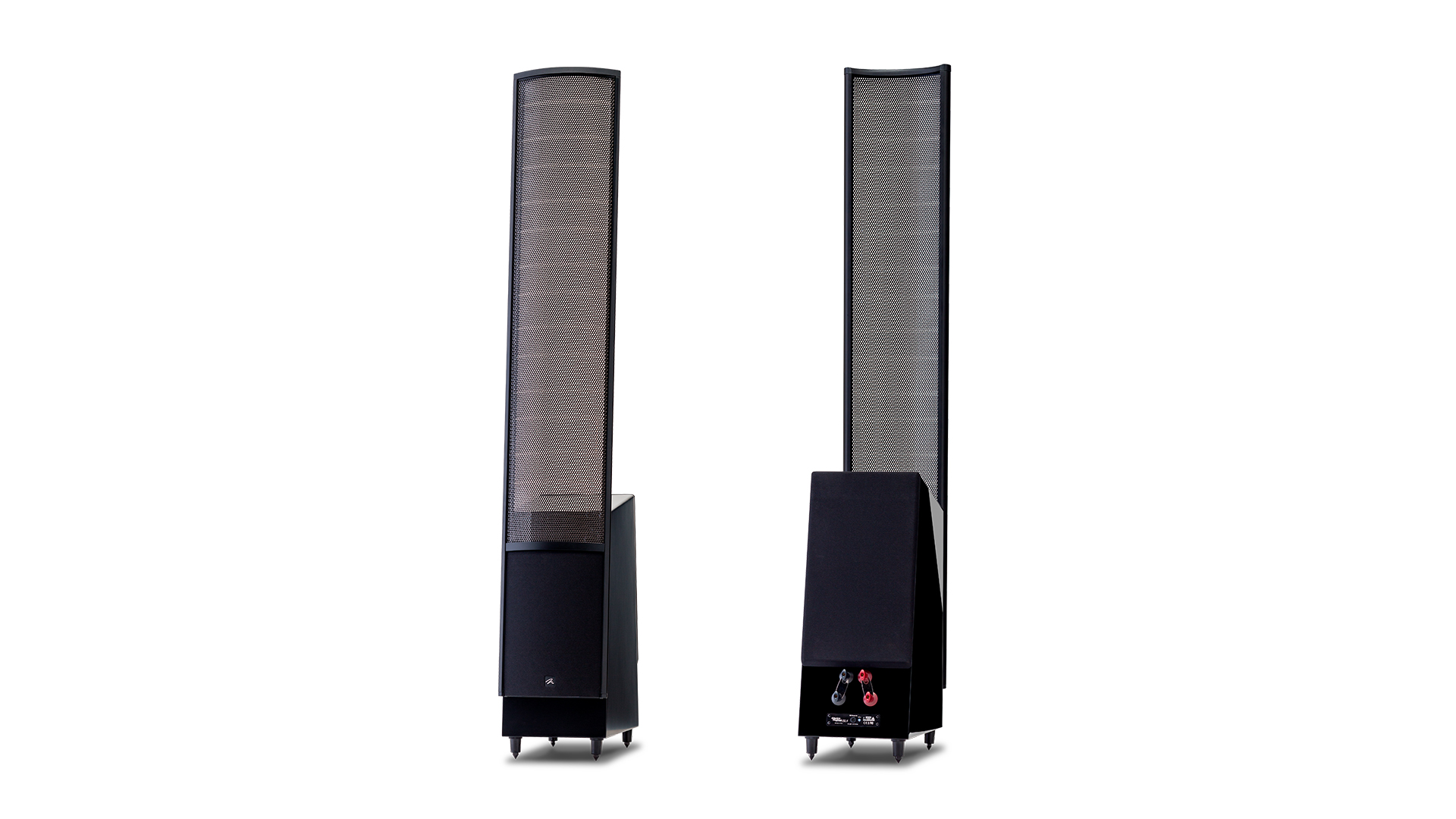
So what does adding a pair of conventional bass drivers do to this cohesion then? Martin Logan has been working on hybrid speakers for decades and it shows. For the most part, the company has done a great job, with the bass drivers keeping their true nature well disguised. But, if you go looking for the differences, the lows aren’t as detailed or precise as the rest of the frequency range. But we can’t fault the overall integration, as the ESL Xs sound all of a piece and are articulate from top to bottom.
While the bass end isn’t particularly deep it does have enough in the way of punch and attack to satisfy, in small to medium rooms at least. The speaker’s overall balance is a little on the lighter side, with the ESL X lacking the sheer authority and tonal richness of the best of their rivals, but not so much that it is a major problem.
We switch to Bruce Springsteen’s High Hopes and the ESL X’s strengths continue to shine through. They communicate The Boss’s voice with all the grit and passion it demands, while maintaining a sense of composure when the production gets dense. It is a fast and emotive presentation; one that gets straight to the core of the music. The speaker’s lack of muscularity in the bass does affect the energy levels of some songs, particularly the gnarly version of The Ghost Of Tom Joad, but there is plenty of compensation in the way these hybrids put a microscope on the recording and uncover subtleties most rivals ignore.
Verdict
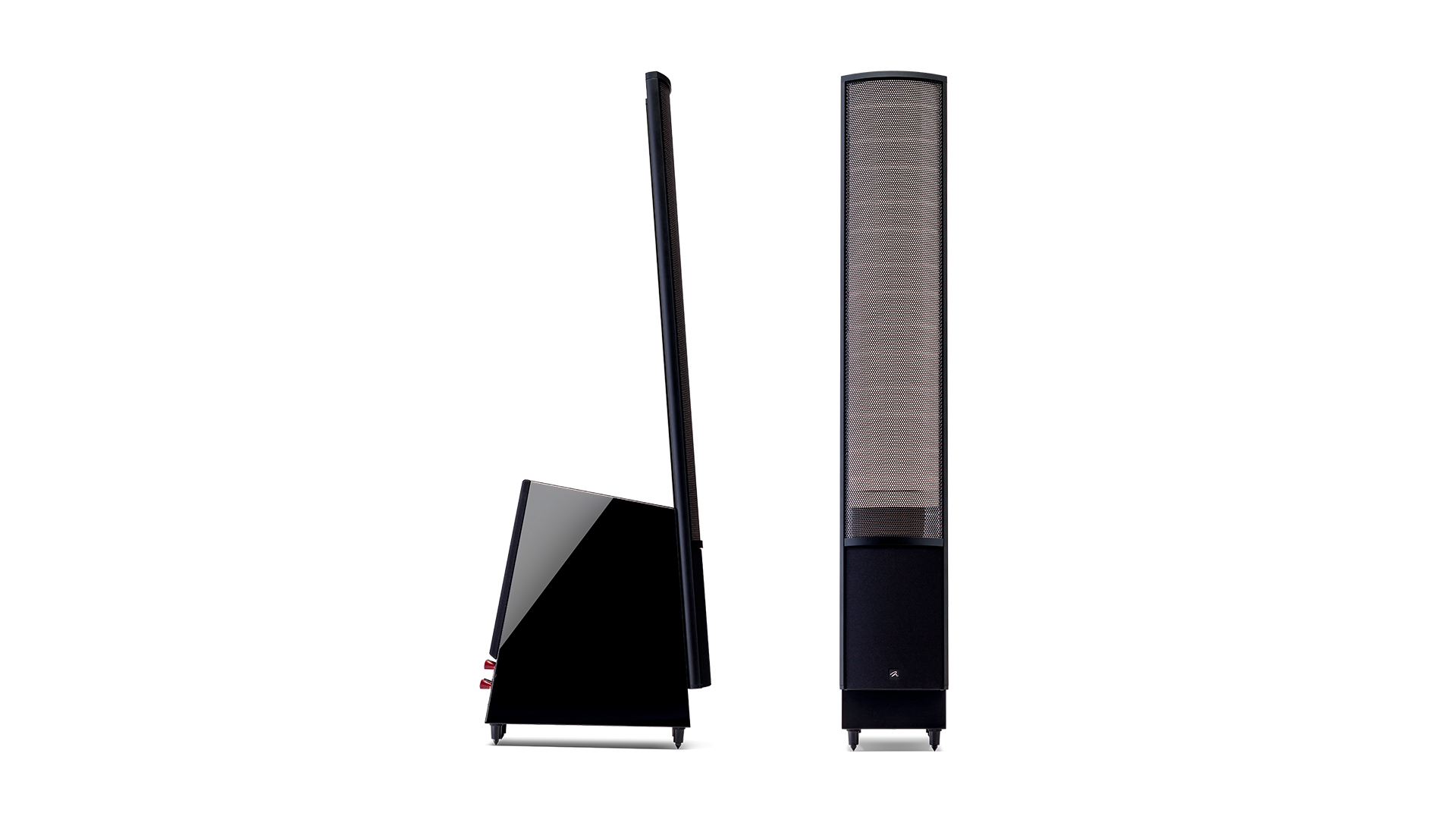
It seems odd to talk of compromise when products cost as much as this, but the reality is that every technology has its limitations. Electrostatics do some things brilliantly, namely their low distortion, precision and clarity, but struggle to deliver the dynamic punch and general muscularity of conventional cone speakers. Going the hybrid route certainly helps to broaden the strengths, and has resulted in an excellent alternative to the established class leaders at the price. If you are lucky enough to buy at this level we think these speakers deserve a high place on the shortlist.
SCORES
- Sound 5
- Build 4
- Compatibility 3
MORE:
Read our review of the Spendor D7.2
Also consider the Epos ES14N
Read our Fyne Audio F502SP review







